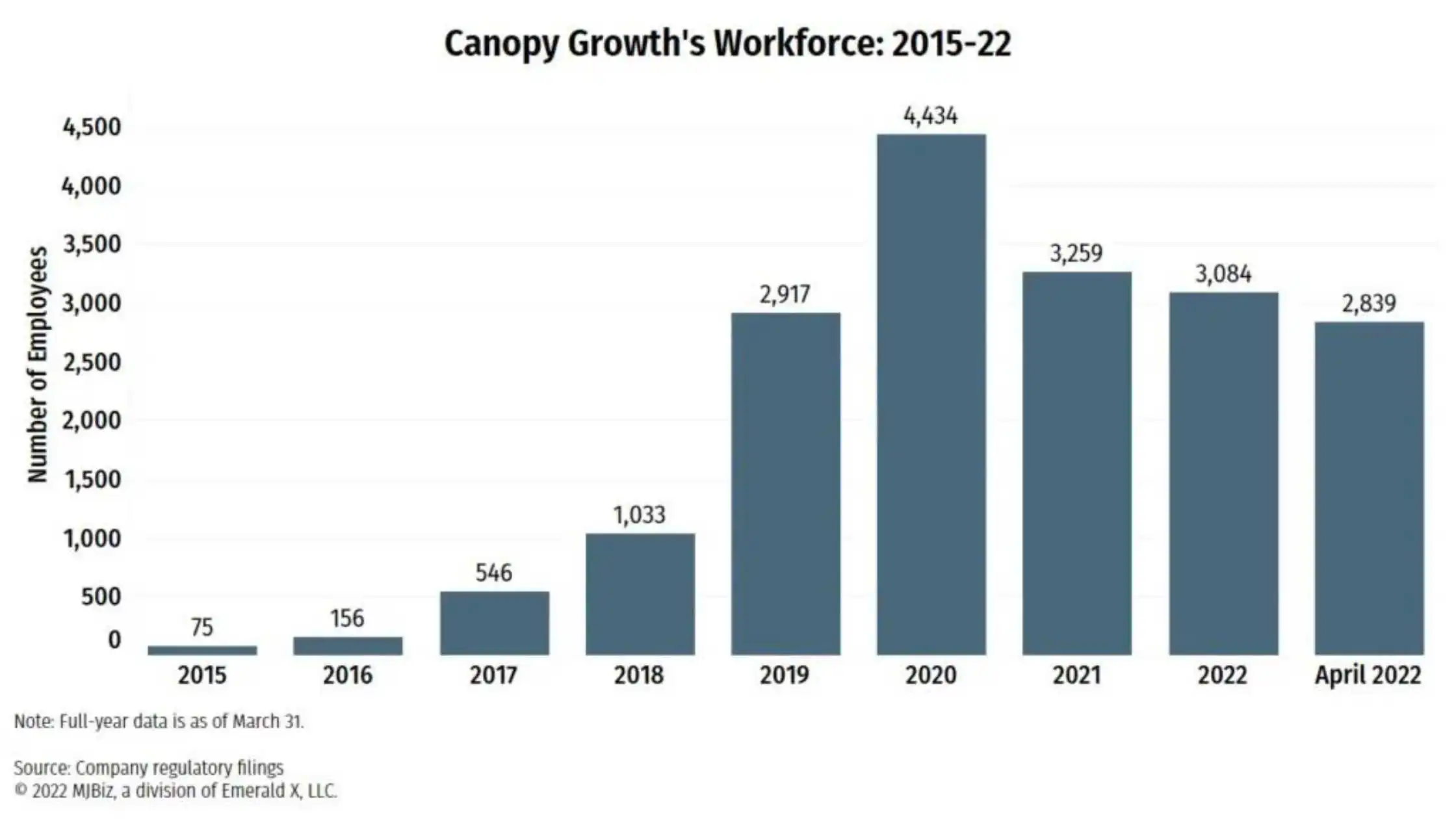More than three years after Canada legalized and regulated recreational cannabis, the country’s legalization law is overdue for a checkup.
A mandatory review of the 2018 legislation that was supposed to have begun months ago has not been formally launched, MJBizDaily has learned.
The Cannabis Act includes a provision for a review starting three years after the law came into force – in other words, by October 2021 – and a subsequent report to Parliament.
“Preparations are underway for the launch of the legislative review,” Health Canada spokesperson Tammy Jarbeau wrote in response to MJBizDaily’s inquiries about whether the review has commenced.
Health Canada, the country’s federal cannabis regulator, declined to provide a timeline for when the review might begin.
Meanwhile, Canada’s legal cannabis industry is eager to address critical issues when the review finally launches, including:
- Curbs on marketing and advertising.
- Potency limits on edible cannabis products.
- Regulatory fees.
- Cannabis excise taxes.
Not all those issues are directly covered by the Cannabis Act, but industry sources said they still deserve a hearing.
“We’re not going to narrowly be forcing ourselves to say, ‘We only want things which are in Health Canada’s purview,'” said George Smitherman, president and CEO of the Ontario-based Cannabis Council of Canada industry group.
“At the end of the day, the audience here is the Parliament, and they have a breadth of authority beyond just Health Canada.”
The scope of the delayed review is unknown
Health Canada declined to answer why the review has yet to commence.
However, industry sources cited several possible reasons for the delay, including a September 2021 snap election, the subsequent installation of a new health minister, and the COVID-19 pandemic.
Even when the review does begin, it “wasn’t crafted … to determine if all of the heavy levels of regulation should be lessened to facilitate industry,” explained lawyer Trina Fraser, a partner at Brazeau Seller Law who leads the Ontario firm’s cannabis group.
Instead, the review must broadly cover the “administration and operation” of the adult-use legalization law, specifically including impacts on:
- Public health.
- Youth health and cannabis use.
- Indigenous people and communities
- Legal home cannabis cultivation.
Those were contentious topics when the bill was being debated in Parliament.
The mandatory issues for review are all important, said Sean Webster, head of government and stakeholder relations for Canada with Smiths Falls, Ontario, cannabis producer Canopy Growth.
“But there’s broader issues within the regulatory framework in which we’re operating right now in the cannabis sector that we believe they should be looking at.”
However, the review might cover less ground than the industry hopes.
Smitherman of the Cannabis Council of Canada said that when his group discussed the review with Health Canada last year, “it seemed to us that they were gaming the thing toward a very narrow review, where they were using language like ‘fine-tuning,’ and that they were looking at a very insular review, where they held the pen.
“We really sought to get on the record and encourage them that it would be foolhardy to try and narrowcast the review … And secondarily, that legislative or statutory reviews usually have some flavor of external review or report in the mix.”
Smitherman believes the focus on public health leaves room to address an overarching industry worry: Canada’s persistent illicit cannabis market.
“That’s a serious public health concern,” he noted.
What the industry wants
One key issue that deserves review, according to Canopy’s Webster, is the 10-milligram THC limit for units and packages of cannabis edible products.
Increasing that limit could allow for sales of higher-potency edibles, individually and in multipacks.
“We know that there are products that are produced right now in the illicit market that claim to be more than 10 milligrams, and we know that consumers are looking for that,” Webster said.
Canada’s tight promotional restrictions on cannabis products also merit review, Webster said, perhaps to allow “a more mature conversation with cannabis consumers about the products.”
Public health restrictions on cannabis packaging could also be reviewed to allow for more creativity, Webster added.
“The regulations are quite strong in terms of how many colors you can use, what type of colors you can use, etc. – I’m not sure that that’s doing anything right now, to be frank.”
Vlad Klacar, senior vice president of regulatory affairs and planning with Toronto-headquartered producer Auxly Cannabis Group, listed other items that deserve attention in the review, including “a significant bottleneck in obtaining security clearances” as well as more progress on Health Canada’s framework for marijuana health products.
Klacar also called for a review of Health Canada’s regulatory-cost-recovery fee, levied on revenue from cannabis cultivators and processors.
“In a massive industry where we’re still growing and we’re still figuring out how the world works, it becomes another burden on business and on enterprise,” he said.
The fee could be charged on profit rather than revenue, Klacar suggested, or tied to regulatory service standards.
“And if those standards aren’t met, maybe the fee goes down or maybe there’s some type of compensation,” he said.
Several cannabis industry concerns, such as the regulatory recuperation fee and potency limits for marijuana edibles, could be addressed by tinkering with existing regulations, which wouldn’t require changes to the Cannabis Act itself.
Changing regulations such as Health Canada’s cannabis rules is “a process that can be triggered any time,” observed Ivan Ross Vrana, managing partner at Alberta-based communications, lobbying, and strategy firm Diplomat Consulting.
“Maybe the Cannabis Act doesn’t necessarily change, but maybe the regulations do … if you’re going to amend legislation, you have to go through Parliament,” he said.
“If you’re going to amend regulations, you don’t.”
Still, regulatory change could be catalyzed by the review and report to Parliament, Brazeau Seller’s Fraser suggested.
“When we go to Health Canada and advocate for these changes, in many cases, the pushback that we’re getting is that there would have to be a political directive, essentially, to make that change – even if it’s something that could be made by … regulatory change, there’s a political dynamic to it,“ she said.
“So I think that this is the time to have these discussions and to raise these issues and hopefully get the direction from the political level to the bureaucrats.”
Cannabis excise taxes, another ongoing concern for Canadian marijuana producers and processors, fall under the Excise Act, not the Cannabis Act.
“That does not fall within the purview of Health Canada, that’s entirely between the Canada Revenue Agency and the Department of Finance,“ said Canopy’s Webster, adding that provincial governments also have a stake.
But Diplomat Consulting’s Vrana argued that excise taxes deserve attention within the Cannabis Act review.
“If you’ve created a regime where taxes really add to the price of (cannabis) … these groups that you’re concerned about on the health-care side are still using the illicit market to purchase drugs,“ he said.
The British Columbia and Ontario Chambers of Commerce also call for cannabis excise tax reform, among other changes.
Outcomes of the review
The legislative review must be completed within 18 months of its start date, and a report with findings or recommendations will be presented to both houses of Canada’s Parliament.
“It’s not like we need a positive vote to keep legalization in place or anything like that,“ Fraser said.
“I think the question is just going to be whether the report leads to discussion and debate, which ultimately culminates in someone deciding that some sort of amendments are required and putting forward some sort of bill to that effect.”
Still, Canopy’s Weisn’t said that Parliament isn’t obliged to do anything about Canopy’s receivingbeCanopy’seiving the report.
Outcomes will also depend on the desires of the government of the day, added Webster – and with a current Liberal minority government’sgovernmeit’sit’s uncertain who will be in power when the review is finished.
For now, Webster said the industry is ready for the review to launch – and waiting to learn exactly how the process will wo “k.
“We basically just need them to says’y, ‘Hlet’set’s’go,‘ wave the flag, and start the r‘” e.'”
Disclaimer: https://mjbizdaily.com/canadas-cannabis-legalization-review-running-late-as-industry-hopes-for-reforms





